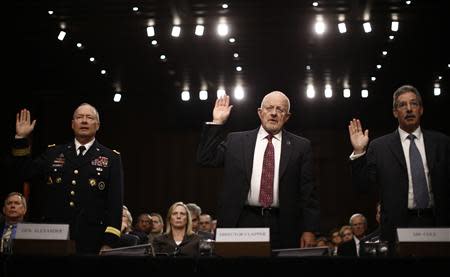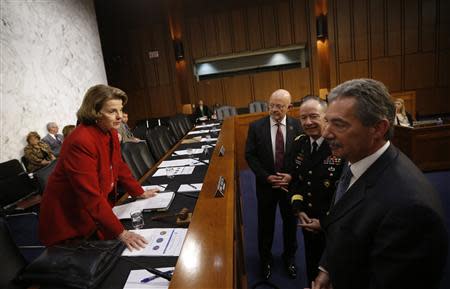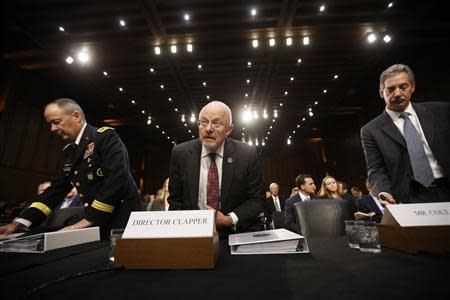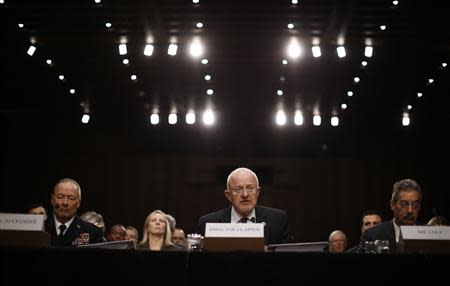U.S. Senate intelligence panel pushes to tighten surveillance
By Patricia Zengerle WASHINGTON (Reuters) - Leaders of the U.S. Senate Intelligence Committee, meeting amid outcry over the government's collection of personal communications data, said on Thursday they were working on legislation that would tighten oversight of federal electronic eavesdropping programs. Among other things, the measure would set tighter standards on which telephone and Internet records the National Security Agency can collect and limit the time that records can be held, said Senator Dianne Feinstein, the committee's chairwoman, at a hearing on changes to the Foreign Intelligence Surveillance Act. Feinstein described several ways in which intelligence agencies would be required to demonstrate suspicion before obtaining any communications data. The bill also would require that the appointment of the director of the NSA would be subject to confirmation by the U.S. Senate, she said. Support for changing the surveillance programs has been growing since former National Security Agency contractor Edward Snowden leaked information starting in June that the government collects far more Internet and telephone data than previously known. James Clapper, director of National Intelligence, General Keith Alexander, director of the NSA, and James Cole, deputy attorney general, who testified at the hearing, said they were open to discussing some changes in the government surveillance programs. In a joint statement, they said they would consider legislation providing for the appointment of an outside advocate for some important cases. Several lawmakers have pressed for a an advocate to represent the public in the secret Foreign Intelligence Surveillance Court that oversees the eavesdropping programs. President Barack Obama also said in August he supported the idea. "We understand the concerns that have been raised about the lack of independent views in certain cases, such as cases involving bulk collection, that affect the privacy and civil liberties interests of the American people as a whole," the intelligence officials said in their statement. Senator Saxby Chambliss, the top Republican on the intelligence panel, said the committee intended to begin its markup debating the bill next week. Many members of Congress - especially on the intelligence committee, which oversees the confidential programs - staunchly defend the surveillance as an essential defense against terrorist attacks. (Reporting by Patricia Zengerle; Editing by Cynthia Osterman)






